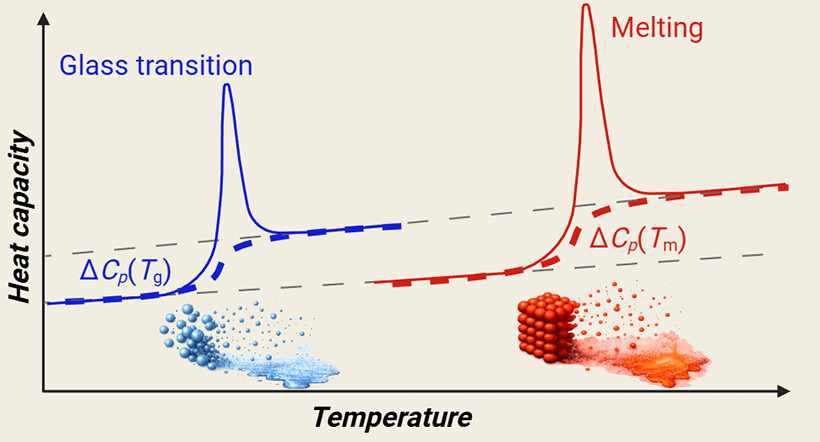Stres to coś, czego doświadcza każdy z nas – przed ważnym egzaminem, po trudnej rozmowie czy w sytuacji niepewności. Dla większości te emocje mijają. Ale u niektórych, zwłaszcza osób bardziej podatnych z powodu uwarunkowań biologicznych lub życiowych doświadczeń, stres może wywołać lub pogłębić poważne choroby psychiczne, takie jak choroba afektywna dwubiegunowa (tzw. bipolarna).
Samo bycie narażonym na stresujące sytuacje – np. traumę, brak wsparcia społecznego czy zaburzenia hormonalne – może być uznane za tzw. psychospołeczne stresory, czyli czynniki powodujące stres. Ale stres to nie tylko chwilowy dyskomfort – może przechylić szalę i doprowadzić do kryzysu zdrowia psychicznego. Jak mówi doktorant Ovinuchi Ejiohuo: „Stres nie działa w próżni. To, jak wpłynie na naszą psychikę, zależy od połączenia stresu z naszą indywidualną wrażliwością – genami, biochemią i wcześniejszymi doświadczeniami.”
Dlaczego tak się dzieje? I co możemy z tym zrobić?

To właśnie te pytania stoją u podstaw badań doktorskich Ovinuchiego, który studiuje w Szkole Doktorskiej Uniwersytetu Medycznego w Poznaniu, w Zakładzie Genetyki Psychiatrii oraz Jednostce Biologii Molekularnej i Komórkowej.
Wiemy już, że stres silniej uderza w osoby z problemami psychicznymi niż w osoby zdrowe. Ale jak dokładnie wpływa np. na osoby z chorobą afektywną dwubiegunową? Czy da się wyodrębnić „typy stresowe” tej choroby i znaleźć konkretne mechanizmy biologiczne – np. geny lub białka – które ją napędzają? Czy takie odkrycia mogą pomóc w opracowaniu celowanych terapii lub „drugiego życia” dla znanych leków?
Ovinuchi, pod opieką prof. dr hab. Aleksandry Szczepankiewicz i dr hab. Joanny Pawlak, pracuje interdyscyplinarnie – łączy dane kliniczne z nowoczesną analizą statystyczną (zarówno klasyczną, jak i bayesowską), eksperymentami biologii molekularnej, informatyką biomedyczną i biologią obliczeniową.
Jego badania przynoszą już pierwsze ważne efekty. Odkrył nowe powiązania genetyczne związane ze stresem u osób z chorobą dwubiegunową, wskazując konkretne markery genetyczne – jak np. polimorfizmy w genach ADRA2A czy AVPR1B. Wyniki te opublikowano m.in. w czasopiśmie Journal of Affective Disorders.
Ale to dopiero początek. Ovinuchi idzie dalej, szukając nowych sposobów leczenia. Dzięki analizom komputerowym i narzędziom opartym na sztucznej inteligencji zidentyfikował obiecujące substancje – zarówno naturalne (np. ruskogenina i neoruskogenina z roślin), jak i syntetyczne (np. lek asoprisnil) – które mogą pomóc regulować odpowiedź mózgu na stres. Wykazano, że te związki mogą wpływać na kluczowe białka systemu stresu, takie jak receptor glukokortykoidowy i FKBP5. Wyniki opublikowano w PLOS ONE oraz Biomedicines.
Wspólnie z prof. Krzysztofem Brzezińskim z Instytutu Chemii Bioorganicznej PAN w Poznaniu badają obecnie, jak dokładnie ruskogenina wiąże się z białkiem FKBP5. Kolejne testy zostaną przeprowadzone w modelu komórkowym w Centrum Medycyny Doświadczalnej UMP, by sprawdzić, jak ta substancja wpływa na reakcję stresową komórek.
Ostatecznym celem tych badań jest zmiana sposobu, w jaki diagnozujemy i leczymy choroby psychiczne. Jeśli uda się zidentyfikować osoby szczególnie wrażliwe na stres, możliwe będzie wcześniejsze, spersonalizowane wsparcie – zanim choroba się rozwinie. Może to oznaczać nowe terapie, zmiany stylu życia lub profilaktykę dostosowaną do biologii pacjenta.
„Mam nadzieję, że moje badania pomogą zbliżyć naukę do pacjentów” – mówi Ovinuchi. „W psychiatrii potrzebujemy takiej samej precyzji, jaką mamy w leczeniu raka czy chorób serca. Zrozumienie stresu może być kluczem do tego celu.”
W świecie, w którym stres jest nieunikniony, nauka może nam pomóc znaleźć nowy rodzaj odporności – dopasowany do naszej biologii, oparty na empatii i poparty dowodami.
Projekt Ovinuchiego jest finansowany z grantu badawczego Szkoły Doktorskiej UMP (nr 126/2024/DGB) oraz małego grantu Uniwersytetu Medycznego im. K. Marcinkowskiego Poznań (nr 190/2025/MGB) przyznanego młodym naukowcom.
Źródła
- Ejiohuo O, Bilska K, Narożna B, Skibińska M, Kapelski P, Dmitrzak-Węglarz M, Szczepankiewicz A, Pawlak J. The implication of ADRA2A and AVPRIB gene variants in the aetiology of stress-related bipolar disorder. Journal of Affective Disorders; 368. 2025; 249–257. https://doi.org/10.1016/j.jad.2024.09.072.
- Ejiohuo O, Bajia D, Pawlak J, Szczepankiewicz A. In silico identification of novel ligands targeting stress-related human FKBP5 protein in mental disorders. PLoS ONE. 2025; 20(3): e0320017. https://doi.org/10.1371/journal.pone.0320017.
- Ejiohuo O, Bajia D, Pawlak J, Szczepankiewicz A. Asoprisnil as a Novel Ligand Interacting with Stress-Associated Glucocorticoid Receptor. Biomedicines. 2024; 12(12):2745. https://doi.org/10.3390/biomedicines12122745.
- Ejiohuo O, Bilska K, Narożna B, Skibińska M, Kapelski P, Dmitrzak-Węglarz M, Szczepankiewicz A, Pawlak J. The role of specific gene variants in stress-induced bipolar disorder. 2024 World Congress of Psychiatric Genetics (WCPG). Singapore, 15 – 19 October 2024. J. Eur. Neuropsychopharmacol. 2024. Vol. 87, suppl. 1, p. 158. DOI: https://doi.org/10.1016/j.euroneuro.2024.08.315
- Ejiohuo O, Bajia D, Pawlak J, Szczepankiewicz A. Exploring novel ligands for FKBP51 human protein interaction and their potential for modulating stress response in bipolar disorder. 37th European College of Neuropsychopharmacology (ECNP) Congress. Milan, Italy, 21 – 24 September 2024. J Neurosci. Appl. 2024, Vol. 3, suppl. 2, p.174 (abstr. 104427). DOI: https://doi.org/10.1016/j.nsa.2024.104427
Kontakt: Ovinuchi Prince Ejiohuo, ovinuchi.ejiohuo[at]gmail.com
Promotorzy: prof. Aleksandra Szczepankiewicz, Centrum Medycyny Doświadczalnej, dr hab. Joanna Pawlak, Zakład Genetyki w Psychiatrii
Zezwalamy na bezpłatny przedruk artykułów ze strony pod wyłącznym warunkiem podania źródła artykułu. Prosimy o podanie następującego źródła: Nauka i Zdrowie UMP – onauce.ump.edu.pl
Prezentowane treści mają charakter wyłącznie informacyjny oraz edukacyjny i nie powinny być interpretowane jako porady medyczne służące do diagnozowania lub leczenia.
Why and How Stress Matters in Mental Health: New Clues from Science
We all experience stress, before a deadline, after bad news, or in moments of uncertainty. For most people, these feelings pass. But for others, especially those already vulnerable due to their biology or life experiences, stress can trigger or worsen severe mental illnesses like bipolar disorder. These vulnerabilities themselves can be considered psychosocial stressors (stressors – factors that can or are perceived by an individual to cause stress). Stress can do more than just cause discomfort. It can help tip the balance toward a mental health crisis. “We’re learning that stress doesn’t act in isolation,” Ovinuchi explains. “It’s the interaction between stress and individual vulnerability (genes, biochemistry, and experiences) that shapes mental health outcomes.” Why does this happen? And what can we do about it?

These are the questions driving the PhD work of Ovinuchi Ejiohuo, a student of the UMP Doctoral School from the Department of Psychiatric Genetics and Molecular and Cell Biology Unit.
Stress is known to have a worse effect on those with mental illnesses than those without. But what is its impact within a specific illness like bipolar disorder? By identifying stress-related subtypes, can we uncover key mechanisms and biomarkers, like genes or proteins, that drive this condition? Could these findings lead to targeted or repurposed treatments for stress-related mental illnesses?
Addressing these questions requires an interdisciplinary approach, and guided by the mentorship and expertise of his supervisors, Prof. Dr. Hab. Aleksandra Szczepankiewicz, Head of the Centre for Experimental Medicine and Head of the Molecular and Cell Biology Unit, and Dr. Hab. Joanna Pawlak (Associate Professor and Psychiatrist), Head of the Department of Psychiatric Genetics, Ovinuchi is employing clinical data and statistical (frequentist and Bayesian) analysis, innovative molecular biology experimentations, computational biology, and bioinformatics to best explore the complexities of stress-related mental illnesses.
He has already found novel genetic associations with stress-related bipolar disorder, pinpointing predictive biomarkers such as polymorphisms, candidate genes and variants (e.g., ADRA2A/rs3750625/AC and AVPRIB/rs28536160/CT published in the Journal of Affective Disorders. But Ovinuchi’s research doesn’t stop at discovering genes. He’s also exploring new therapeutic directions. Using computational biology and AI-powered tools, he has identified repurposed molecules, including plant-derived compounds like ruscogenin and neoruscogenin, and drugs like asoprisnil, that could one day help regulate the brain’s response to stress. These molecules show strong potential to interact with stress-related proteins like FKBP5 and glucocorticoid receptor, a key player in the body’s stress hormone system. Some of this work has already been published in PLOS ONE and Biomedicines.
In collaboration with Prof. Krzysztof Brzeziński from the Department of Structural Biology of Prokaryotic Organism, Institute of Bioorganic Chemistry, Polish Academy of Science in Poznan, they are currently structurally validating the interaction of ruscogenin with FKBP5 protein. The functional role of ruscogenin will then be validated using a stress cell line model at the UMP Centre for Experimental Medicine. He hopes to unravel its modulatory role in the stress response system.
This PhD work is about changing how we think about and treat mental illness. If we can identify people who are especially sensitive to stress, we can offer earlier, more personalised interventions. This could include targeted therapies, lifestyle changes, or preventive care long before a full-blown illness develops. “Ultimately, my hope is to help bridge the gap between biological research and patient care,” says Ovinuchi. “We need more precision in mental health treatment, just like we have in cancer or heart disease. And understanding stress could be a key step in that direction.” In a world where stress is unavoidable, the hope is that science can offer a new kind of resilience, one that’s tailored to our biology, rooted in compassion, and grounded in evidence.
This PhD work is funded through the UMP Doctoral School Large Research Grant number 126/2024/DGB and Small Research Grant number 190/2025/MGB from the statutory funds for young scientists awarded to Ovinuchi Ejiohuo.
References
- Ejiohuo O, Bilska K, Narożna B, Skibińska M, Kapelski P, Dmitrzak-Węglarz M, Szczepankiewicz A, Pawlak J. The implication of ADRA2A and AVPRIB gene variants in the aetiology of stress-related bipolar disorder. Journal of Affective Disorders; 368. 2025; 249–257. https://doi.org/10.1016/j.jad.2024.09.072.
- Ejiohuo O, Bajia D, Pawlak J, Szczepankiewicz A. In silico identification of novel ligands targeting stress-related human FKBP5 protein in mental disorders. PLoS ONE. 2025; 20(3): e0320017. https://doi.org/10.1371/journal.pone.0320017.
- Ejiohuo O, Bajia D, Pawlak J, Szczepankiewicz A. Asoprisnil as a Novel Ligand Interacting with Stress-Associated Glucocorticoid Receptor. Biomedicines. 2024; 12(12):2745. https://doi.org/10.3390/biomedicines12122745.
- Ejiohuo O, Bilska K, Narożna B, Skibińska M, Kapelski P, Dmitrzak-Węglarz M, Szczepankiewicz A, Pawlak J. The role of specific gene variants in stress-induced bipolar disorder. 2024 World Congress of Psychiatric Genetics (WCPG). Singapore, 15 – 19 October 2024. J. Eur. Neuropsychopharmacol. 2024. Vol. 87, suppl. 1, p. 158. DOI: https://doi.org/10.1016/j.euroneuro.2024.08.315
- Ejiohuo O, Bajia D, Pawlak J, Szczepankiewicz A. Exploring novel ligands for FKBP51 human protein interaction and their potential for modulating stress response in bipolar disorder. 37th European College of Neuropsychopharmacology (ECNP) Congress. Milan, Italy, 21 – 24 September 2024. J Neurosci. Appl. 2024, Vol. 3, suppl. 2, p.174 (abstr. 104427). DOI: https://doi.org/10.1016/j.nsa.2024.104427
Contact: Ovinuchi Prince Ejiohuo, ovinuchi.ejiohuo[at]gmail.com
Supervisors: prof. Aleksandra Szczepankiewicz, Centre of Experimental Medicine, dr hab. Joanna Pawlak, Department of Psychiatric Genetics
We allow free reprinting of articles from the website under the sole condition that the source of the article is mentioned. Please cite the following source: Nauka i Zdrowie UMP (Science and Health PUMS) – onauce.ump.edu.pl
The content presented is for informational and educational purposes only and is not intended as a substitute for professional medical advice, diagnosis, or treatment.






